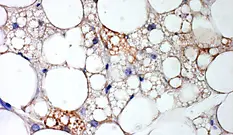Disrupted signal transduction pathways cause various metabolic disorders such as obesity and diabetes. In diabetes, for example, the insulin signal that tells the cell via its insulin receptor to take up glucose from the bloodstream does not function. This results in a dramatic rise of the blood sugar levels, which causes damage to a number of organs. Chronically increased calorie intake and resulting obesity is associated with excessive production of signaling substances that attract highly active immune cells, which ultimately leads to metabolic malfunctions in various tissues. Disrupted signaling pathways and resulting disruptions in metabolism are more common with increasing age. They are not only the cause of severe metabolic disorders such as diabetes and arteriosclerosis but also a characteristic or even the cause of a number of cancers.
“We have invited the world’s best scientists in this exciting field to Heidelberg to cover the entire spectrum of this topic – from the basics through to treatment ideas," said Stephan Herzig prior to the conference. Thus, there will be lectures about insulin signaling pathways in Drosophila just as about inflammatory signals in obesity. Differences between brown and white fat tissue will be covered just as the role of the innate immune system in energy metabolism. On Friday, there will be sessions dealing with questions of how disrupted metabolic pathways lead to cancer and how this knowledge may be used for novel treatments.
The Manfred Lautenschläger Foundation and the Klaus Tschira Foundation generously support the conference.
Journalists are welcome to attend the conference. For the conference program please go to http://www.dkfz.de/en/metabolism-2012/program.html



